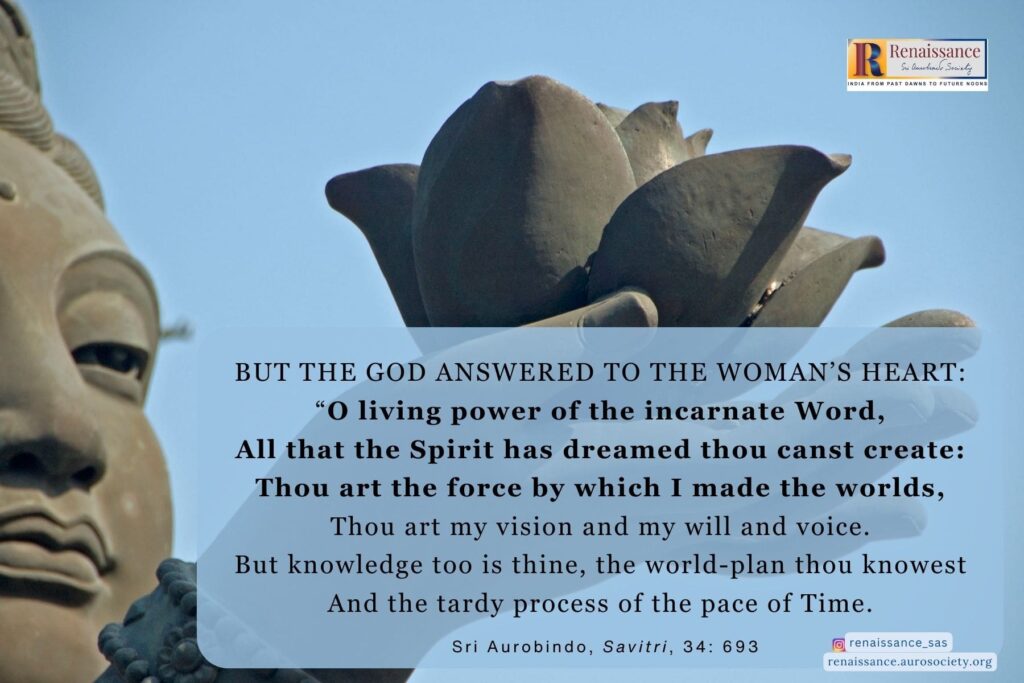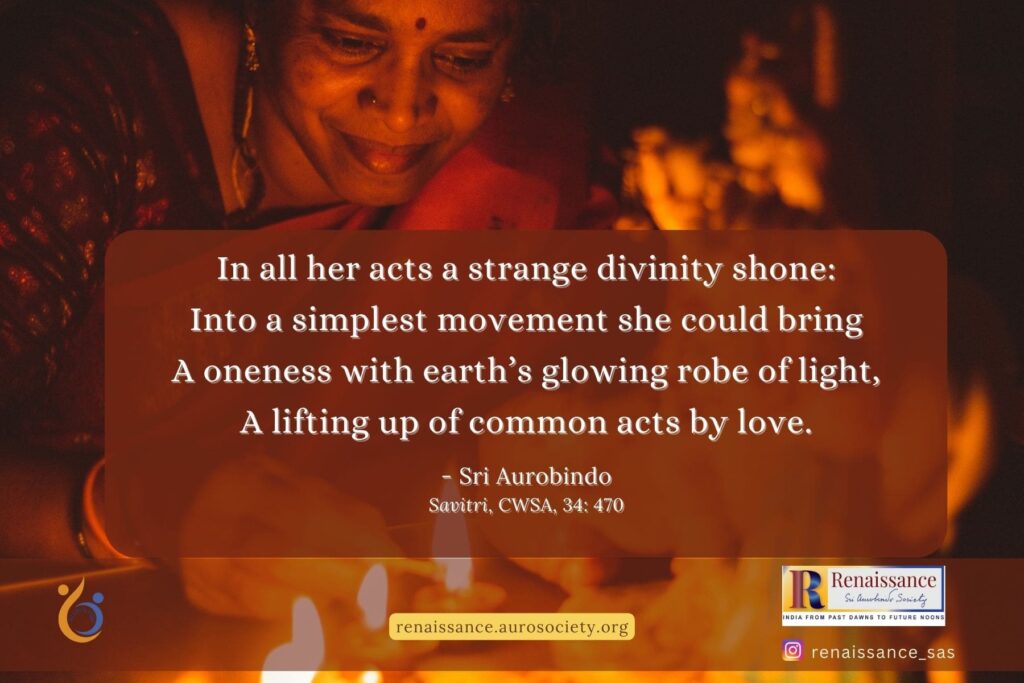Editor’s note: How and why did the taste for food develop? How can one refine and develop one’s sense of taste? These were the subjects of a conversation the Mother had with some disciples on 23 February, 1955. We feature relevant excerpts here, with minor formatting revisions for the purpose of this digital presentation.

Sweet Mother, from the beginning man ate because he needed food in order to live. Then why did taste for food develop? One eats what one likes to, and doesn’t eat what one doesn’t like!
I think primitive man was very close to the animal and lived more by instinct than by intelligence, you see. He ate when he was hungry, without any rule of any kind. Perhaps he had his tastes and preferences too, we know nothing much about it, but he lived much more materially, much less mentally and vitally than now.
Surely primitive man was very material, very near the animal. And as the centuries pass, man becomes more mental and more vital; and as he becomes more vital and mental, naturally refinement is possible, intelligence grows, but also the possibility of perversion and distortion.
Developing one’s sense of taste
You see, there is a difference between educating one’s senses to the point of being able to bring in all kinds of refinements, developments, knowledge, all the possibilities of appreciation, taste, and all that—there is a difference between this, which is truly a development and progress of consciousness, and attachment or greediness.
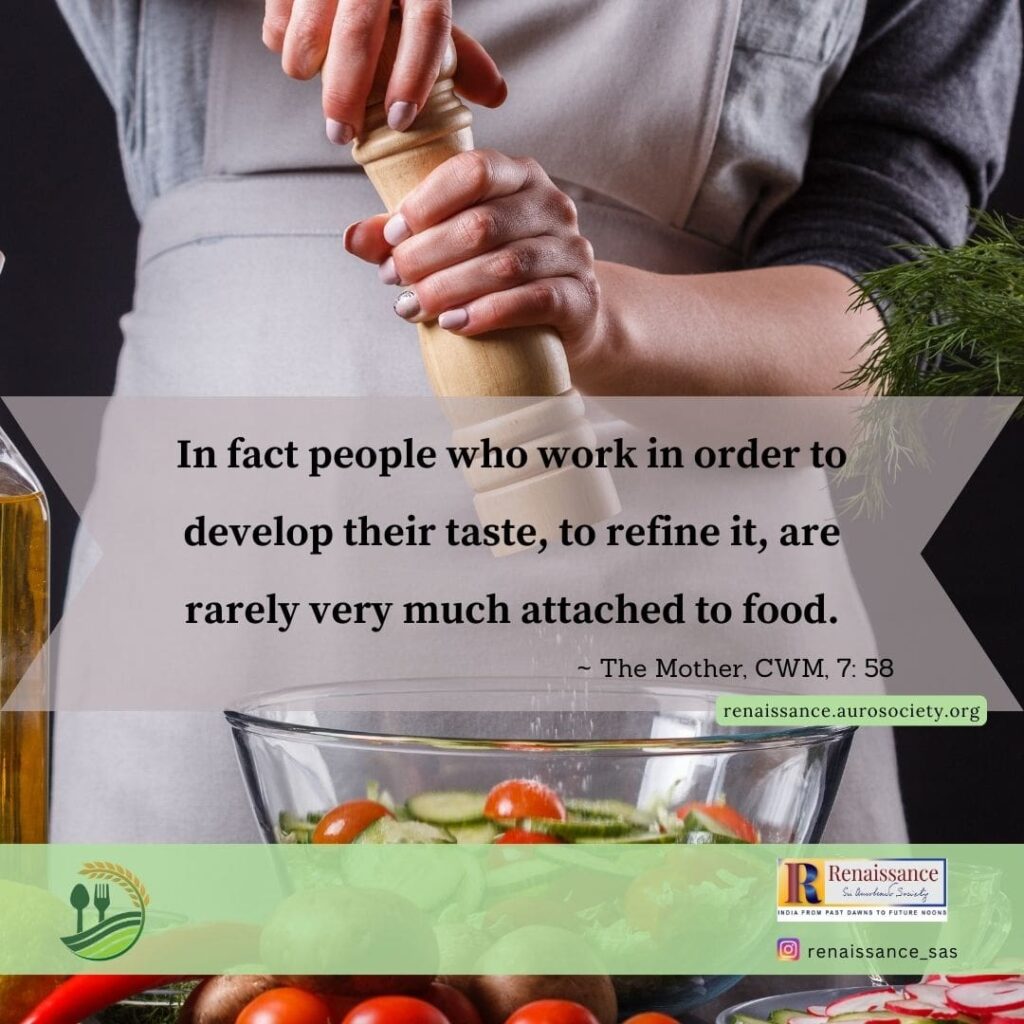
One can, for example, very well make a very deep study of taste and have a very detailed knowledge of the different tastes of things, of the association between ideas and taste, in order to acquire a full development—not positively vital, but a development of the senses.
There is a great difference between this and those who eat through greediness, who think all the time about food. You see, for them eating is the most important thing; all their thoughts are concentrated on it, and they eat not because they need to eat but through desire and greed and gluttony.
In fact people who work in order to develop their taste, to refine it, are rarely very much attached to food.
It is not through attachment to food that they do it. It is for the cultivation of their senses, which is a very different thing. It is like the artist, you know, who trains his eyes to appreciate forms and colours, lines, the composition of things, the harmony found in physical nature; it is not at all through desire that he does this, it is through taste, culture, the development of the sense of sight and the appreciation of beauty.
And usually artists who are real artists and love their art and live in the sense of beauty, seeking beauty, are people who don’t have many desires. They live in the sense of a growth not only visual, but of the appreciation of beauty. There is a great difference between this and people who live by their impulses and desires. That’s altogether something else.
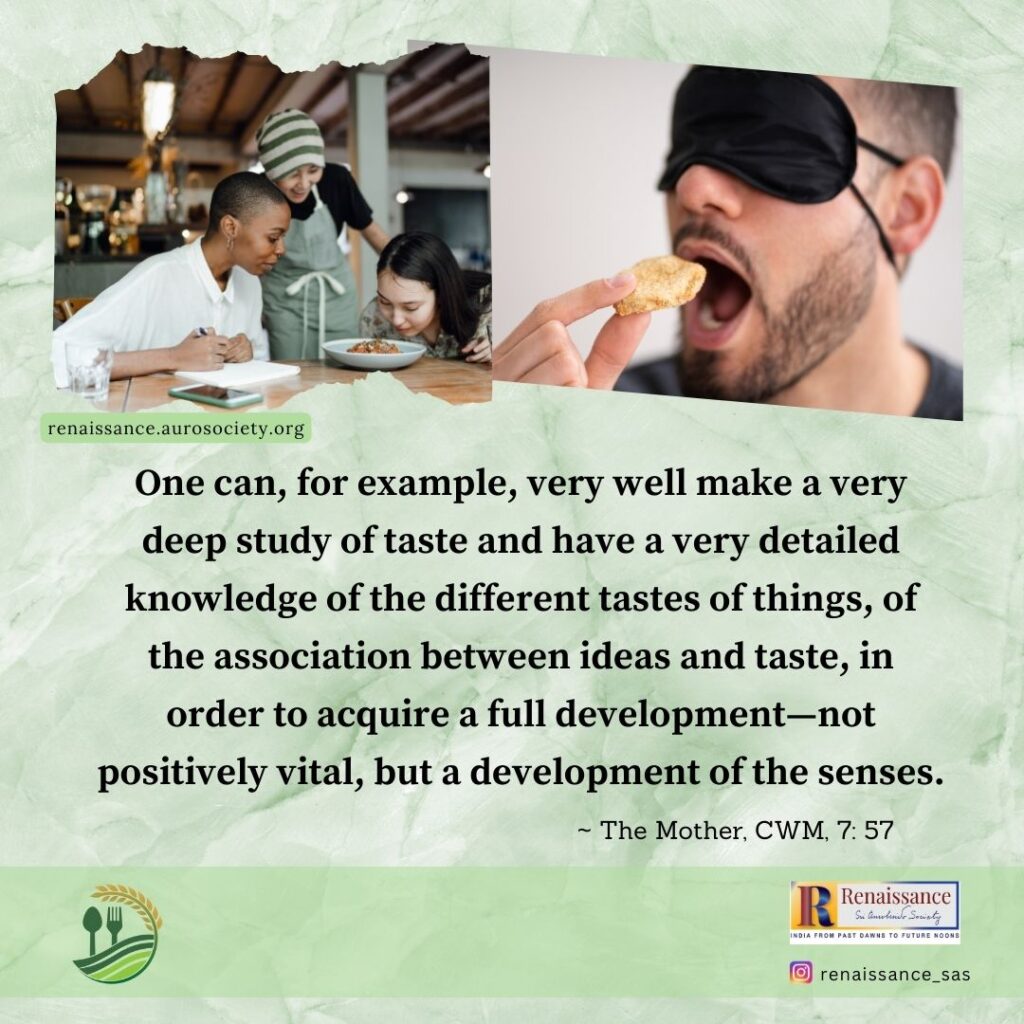
Refinement of the senses to cure instincts
Usually all education, all culture, all refinement of the senses and the being is one of the best ways of curing instincts, desires, passions. To eliminate these things does not cure them; to cultivate, intellectualise, refine them, this is the surest means of curing.
To give the greatest possible development for progress and growth, to acquire a certain sense of harmony and exactness of perception, this is a part of the culture of the being, of the education of the being. It is like the people who cultivate their intelligence, who learn, read, think, compare, study.
These people’s minds widen and they are much vaster and more understanding than those who live without mental education, with a few petty ideas which sometimes are even contradictory in their consciousness and govern them totally because these are the only ones they have and they think these are unique ideas which should guide their life; these people are altogether narrow and limited whereas those who are trained and have studied—this at least widens their minds and they can see, compare ideas and see that all possible ideas are there in the world and that it is a pettiness, an absurdity to be attached to a limited number of ideas and consider them the exclusive expression of truth.
Education is certainly one of the best means of preparing the consciousness for a higher development.
There are people with very crude and very simple natures, who can have great aspiration and attain a certain spiritual development, but the base will always be of an inferior quality, and as soon as they return to their ordinary consciousness they will find obstacles in it, because the stuff is too thin, there are not enough elements in their vital and material consciousness to enable them to bear the descent of a higher force.
To eat through greediness and a passion for food is something completely different from studying the different tastes and knowing how to compare them, combine them and appreciate them. . .
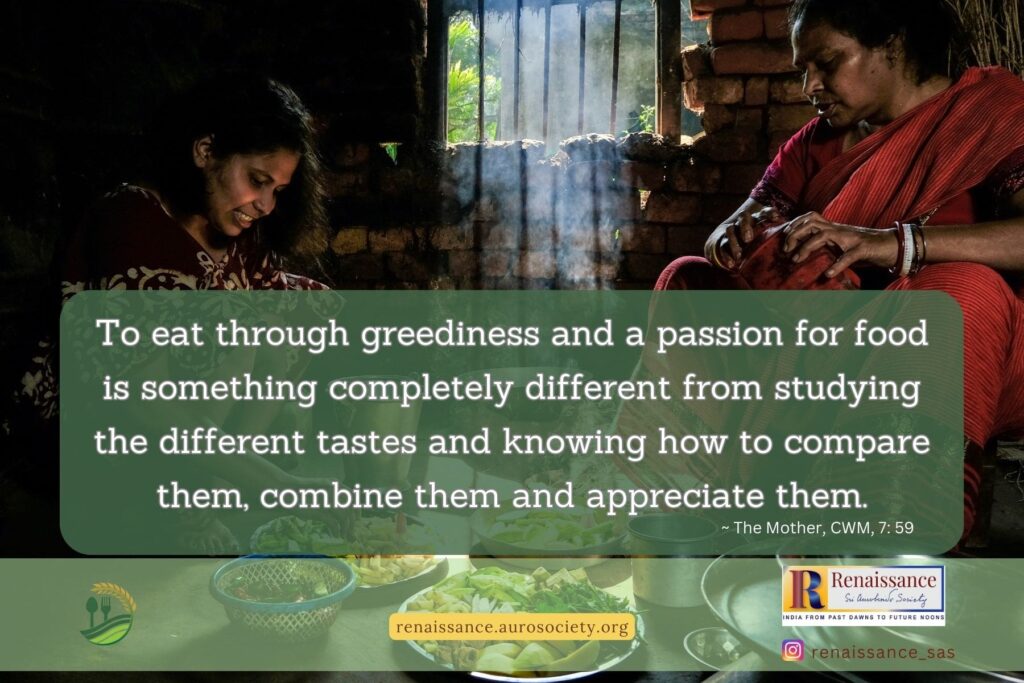
Sweet Mother, where do tastes come from?
It is one of the senses; it is said that it’s the tongue; I don’t know. It is the sense of taste, as there is the sense of touch. How does it happen that we feel something with the tips of the fingers? There are nerves there, nerves and consciousness. Taste—is the nerves and consciousness which are in the tongue and the palate.
But there are other tastes for different things.
Oh, it is the word which is the same… The word is used in a literal sense and then in a figurative sense. He has a taste for something—that’s a figurative way of using the word. It does not mean that it is the same thing as the taste of the tongue; or of somebody we say that he has good taste, it means that he knows how to appreciate clearly and judiciously, but it doesn’t mean that he tastes with his tongue.
ALSO READ:
Education of the Body and Food Habits
~ Design: Beloo Mehra


